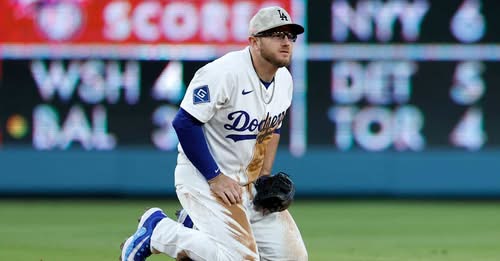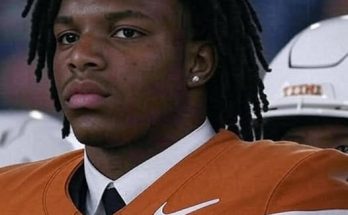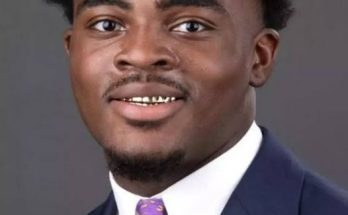Max Muncy didn’t mince words when asked about his recent defensive struggles. The veteran Los Angeles Dodgers infielder, known for his power at the plate, was brutally honest about how his defense has affected both his mindset and his team. “It’s depressing,” Muncy said following a recent game, visibly frustrated. “I’m letting the team down.”
That level of vulnerability from a player of Muncy’s caliber is rare in the high-stakes world of Major League Baseball, where athletes are often encouraged to shrug off poor performances and move on. But Muncy’s admission reflects a deeper awareness of his role on a championship-contending roster and a growing sense of accountability that, while admirable, is also clearly weighing on him.
Muncy’s defensive miscues have become a point of concern for the Dodgers as they push through the heart of the season. While his bat continues to flash power and his on-base skills remain strong, his glove work has left something to be desired. Errors at crucial moments have cost the Dodgers runs and, in a few unfortunate cases, games. For a team with World Series aspirations, every misstep is magnified.
“You take pride in doing your job,” Muncy continued. “I know what I’m capable of, and it’s just not showing up right now. That’s hard to swallow. You feel like you’re the weak link.”
His words resonated across the clubhouse, where teammates and coaches alike have expressed support. Manager Dave Roberts acknowledged Muncy’s struggles but emphasized his value to the team. “Max is one of our leaders,” Roberts said. “He’s going through a rough patch defensively, but he’s still contributing in so many ways. We believe in him.”
The Dodgers, sitting near the top of the National League standings, rely heavily on their infield depth and consistency. Muncy’s flexibility — being able to play multiple infield positions — has long been a strength. But that same versatility can also be a double-edged sword, especially when it leads to mental fatigue and positional uncertainty.
Muncy acknowledged that shuffling between third base and second base has presented challenges. “It’s tough when you’re not getting consistent reps at one spot,” he said. “But that’s not an excuse. I have to be better.”
At 33, Muncy is one of the veterans in the Dodgers’ clubhouse. He’s been part of multiple deep playoff runs, including the team’s 2020 World Series title. With that experience comes expectations — from fans, from teammates, and perhaps most intensely, from himself.
“I hold myself to a high standard. I think every guy in here does,” he said. “So when you’re not meeting that standard, it’s frustrating. It eats at you.”
Baseball, perhaps more than any other sport, is a game of failure. Even the best players fail to reach base 60% of the time. Fielding, unlike hitting, allows less margin for error. One mistake can alter the course of a game, and for Muncy, those moments seem to be accumulating.
Analysts have pointed out that Muncy’s defensive metrics have slipped in recent seasons. Advanced stats like Defensive Runs Saved (DRS) and Ultimate Zone Rating (UZR) paint a picture of a player struggling to maintain the range and consistency expected of an everyday infielder. While Muncy remains a potent force in the lineup, his defense has become a liability opponents are beginning to exploit.
Still, Muncy remains determined to turn things around. He has been arriving at the ballpark early for extra work with the Dodgers’ coaching staff, trying to iron out the footwork and glove positioning that have led to recent misplays.
“It’s about doing the little things right,” he said. “Staying low, making the right reads, and just trusting yourself. Sometimes you get in your own head and that’s when the errors start happening.”
Mental toughness has never been in question for Muncy. A late bloomer in MLB terms, he was cut by the Oakland Athletics in 2017 before resurrecting his career with the Dodgers. His story of perseverance and self-belief is one many in the game admire.
“I’ve been through worse,” Muncy said. “This is just another test. I know I can get through it.”
That kind of resilience is one reason the Dodgers haven’t lost faith. In a sport with a grueling 162-game schedule, slumps and struggles are inevitable. But the true measure of a player often lies in how he responds to adversity.
Muncy’s teammates have been quick to support him both on and off the field. Star outfielder Mookie Betts, who has also played infield this season, praised Muncy’s dedication. “Max shows up and works his tail off every day. Nobody wants to succeed more than he does. We all have his back.”
Veteran pitcher Clayton Kershaw echoed those sentiments. “You don’t get to where Max is without being mentally tough. He’s a competitor. He’ll figure it out.”
While Muncy’s honesty about his emotions may be seen as a sign of vulnerability, it also reflects the emotional weight that professional athletes often carry behind the scenes. Baseball may be a team sport, but each player carries his own burden, especially when performance dips below expectations.
Fans, too, have noticed. Social media has been a mixed bag, with some frustrated by Muncy’s defense and others applauding his transparency. In an era where athletes are more accessible than ever, moments like these serve as a reminder of the human side of sports.
For now, Muncy is focusing on staying grounded and controlling what he can. That means daily drills, mental resets, and trying not to let the weight of one bad game carry into the next.
“I have to take it one play at a time, one game at a time,” he said. “The only way out is through.”
His words may be simple, but they speak volumes about the inner battle he’s fighting. Whether he returns to form defensively remains to be seen, but there’s little doubt that Muncy’s heart is in the right place. His willingness to own up to his struggles, to admit that he’s feeling the weight of his mistakes, makes him all the more relatable.
Baseball is a game of adjustments. Muncy has made them before, and there’s reason to believe he will again. His power at the plate hasn’t disappeared, and his leadership remains invaluable in the Dodgers’ clubhouse.
As the season wears on, the Dodgers will continue to lean on their veteran core. And if Muncy can channel his frustration into progress, the team will be better for it.
“I love this game,” he said. “I love this team. That’s why it hurts so much. But I’m not going to stop fighting. Not now. Not ever.”
In the often-unforgiving world of professional sports, where performance is measured down to the decimal point, Muncy’s candor is a refreshing reminder that even the toughest competitors are human. And sometimes, admitting you’re struggling is the first step toward bouncing back stronger than ever.



